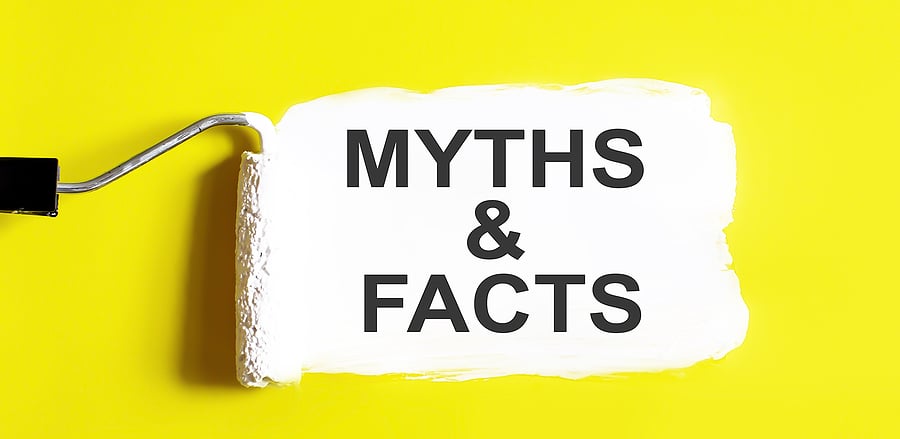These 6 Common Homeowners Insurance Myths Could Cost You Money

Homeowners insurance can be complicated. Maybe that’s why two-thirds of U.S. homes are underinsured, according to industry statistics. The complexity of property and casualty insurance probably explains why some misconceptions persist, even among people who’ve been buying insurance for years. The following insurance myths are surprisingly common.
Myth 1. All Insurance Policies Are the Same
There’s no such thing as a “standard” property policy. Every homeowner has different insurance needs. Each property is unique.
For many reasons, different insurers may charge widely varying amounts for similar coverage. It pays to work with a broker who’s affiliated with multiple companies to help tailor the coverage to your individual situation.
Myth 2. You Can Fudge Things on Your Insurance Application
In insurance, there’s no such thing as “a little white lie.” It’s important that you answer questions honestly and disclose all the information that the insurance provider requests when applying for a policy. Fudging the facts or “forgetting” to disclose information can result in coverage being reduced or denied, or even make you liable for fraud.
Myth 3. Lapsed Coverage Doesn’t Matter
Letting a policy lapse before purchasing a new one seems harmless. Unless something happens while you’re uninsured, what difference does it make?
It can make a significant difference. Letting policies lapse or creating insurance gaps is risky behavior in the eyes of insurers. If they see a pattern of letting policies lapse, insurers may increase your rates or decline to offer coverage.
If you have a mortgage, the lender will typically require homeowners insurance to protect the bank’s interest. Allowing coverage to lapse could prompt the lender to implement force-placed insurance, which you’ll have to pay. Such policies usually cost more and offer little protection for homeowners.
Myth 4. Your Coverage Limit Should Equal the Market Value
Your homeowner’s policy should offer enough coverage to make you whole in the event of a fire, theft or disaster. If your building burns to the ground, for example, your insurance should cover the value of the contents and the cost to rebuild.
That amount of coverage won’t match the amount you paid for the property or its current market value, and it shouldn’t. If you live in a high-demand area, the market value, which also includes the land, may exceed reconstruction costs.
To figure out the replacement cost for your home, multiply the square footage by current construction costs for your ZIP code. (Note: Your insurance partner should be tracking this information for you. If not, we’ll check on your behalf.) Over insuring wastes money; underinsuring can mean financial disaster in a total loss.
Myth 5. Home Insurance Covers All Forms of Water Damage
Insurance protection for water damage depends on the cause and source of the water. A standard homeowners insurance policy covers sudden and accidental water damage, such as burst pipes. Slow leaks, on the other hand, are considered a maintenance issue and typically aren’t covered.
Damage from water that backs up or overflows from a sewer, drain or sump isn’t covered by a standard homeowners policy. Neither is flooding, when water enters a building due to heavy or prolonged rain, melting snow or coastal storm surges. Both forms of water damage require specialized insurance policies.
Myth 6. All Contents Are Protected up to the Policy Limits
As long as the total value of your personal possessions doesn’t exceed the policy limits, they should be protected, right? Again, that depends. High-value contents—such as jewelry, artwork, guns or collectibles—may be excluded unless you’ve added additional insurance or a rider to your policy.
Particularly with art, collectibles or rarities, make sure you give your insurer a full list of covered items, documented with photos, receipts or appraisals. If in doubt, ask your agent or broker what you need to protect your valuable items.
Get the Facts About Your Homeowners Insurance Policy
If you don’t fully understand what is and isn’t covered in your insurance policies, get a full explanation from your agent or broker. Don’t assume that something is covered and then find out the hard way that it isn’t.
If you have any questions about your insurance coverage or would like a complimentary review of your existing policies, please call us at 877-576-5200.


Comments (0)